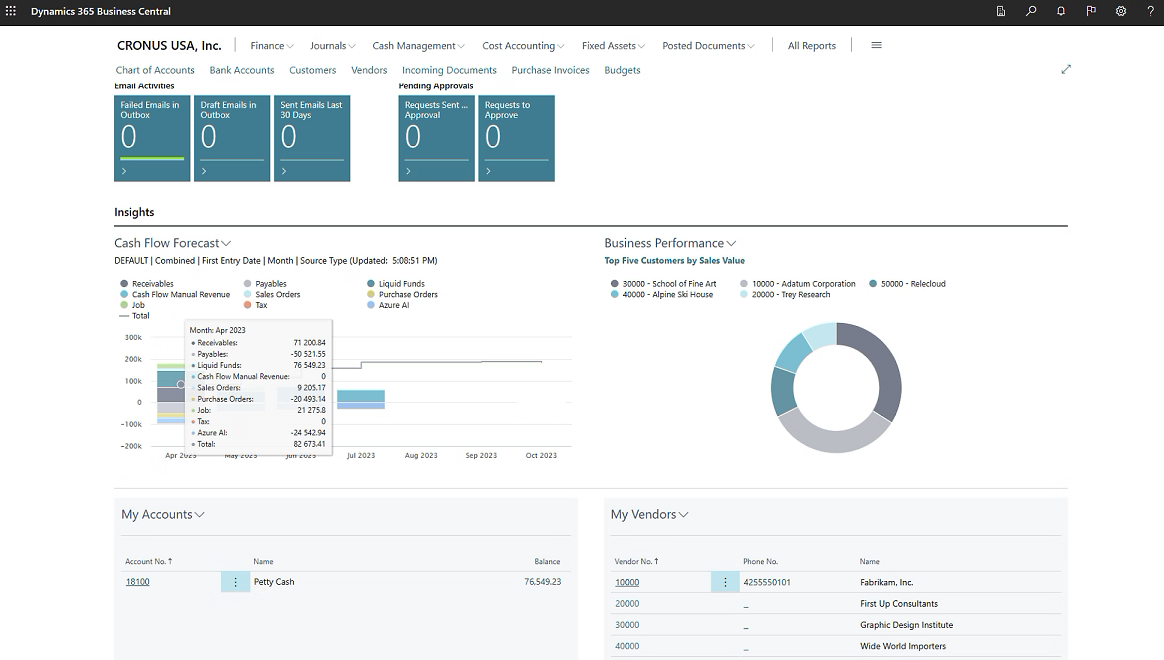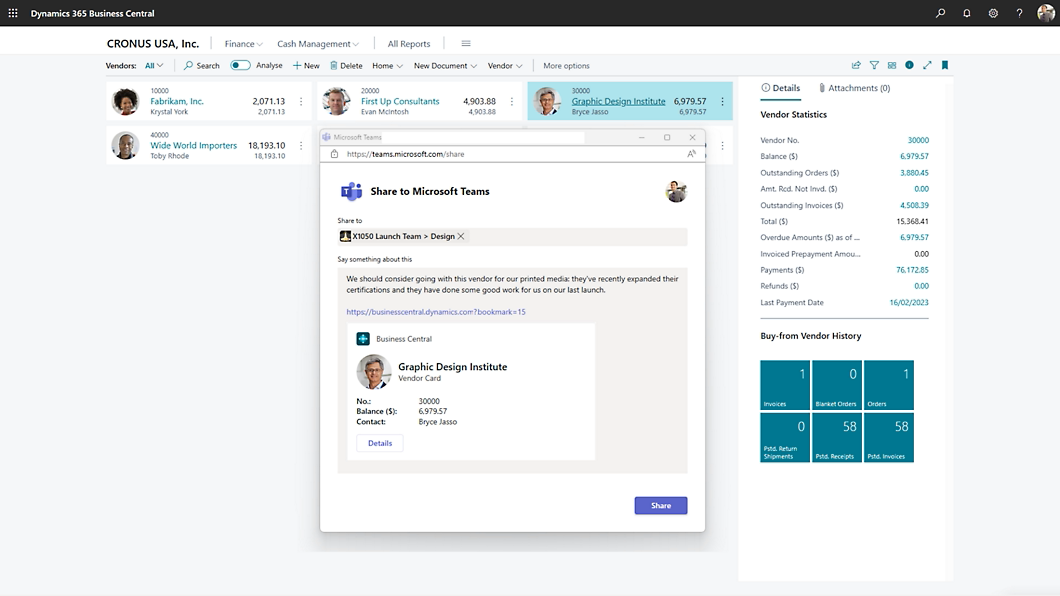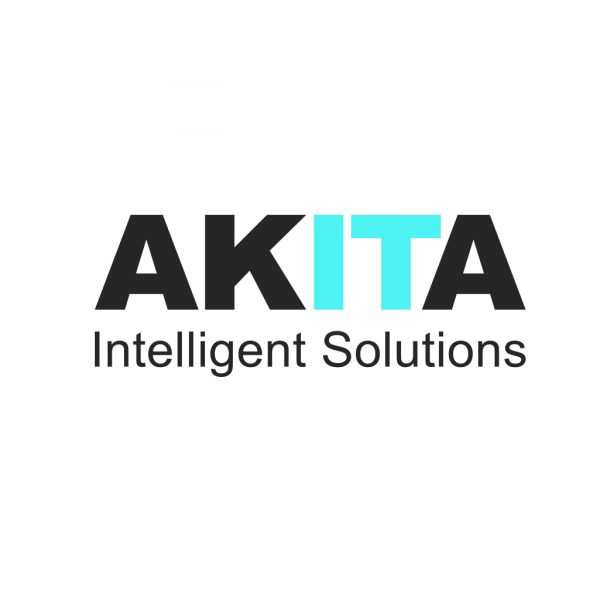In operation since 2004, SAP ERP Central Component (ECC) is a legacy on-premise ERP system that’s now coming to the end of life.
As it is being phased out, organisations are facing pressure to adopt SAP’s cloud offering, S/4HANA, with a final deadline due at the end of 2027.
However, transitioning to SAP’s more modern ERP solution comes with significant costs and complexity. As such, many businesses are evaluating whether SAP remains the best fit for their future needs, especially as alternative ERP solutions have risen in prominence.
Microsoft Dynamics 365 Business Central is one platform that has emerged as a powerful, flexible, and cost-effective alternative to SAP S/4 HANA Cloud. Combining Microsoft’s suite of integrated business tools with a modern, user-friendly interface that simplifies ERP management, it offers many clear advantages over SAP S/4HANA.
Below we compare Business Central vs SAP S/4HANA Cloud to help organisations assess whether Microsoft’s offering is now a better alternative to SAP’s:
Affordable Transition & Simplicity Of Implementation
One of the primary drivers for existing SAP ECC users to go to market is cost. Moving to SAP S/4HANA from ECC requires a significant financial commitment and time investment, particularly for small to medium-sized enterprises.
Business Central, by contrast, offers a more cost-effective and streamlined implementation process. Designed to be functional ‘out of the box’, Business Central has lower initial costs and follows a subscription-based model for users that is both transparent and easy to calculate with growth. This makes it an excellent choice for businesses that need a straightforward transition without the heavy financial burden.
Functionality
While SAP S/4HANA is powerful, its extensive features can be overwhelming for businesses that value simplicity. SAP’s depth often leads to a steep learning curve for users.
Microsoft has designed Business Central with usability in mind, creating an intuitive interface that integrates smoothly with widely used Microsoft tools such as Office 365, Teams, and Power BI. This familiarity helps employees adapt quickly.
But that’s not to belittle Business Central’s capabilities: finance managers are consistently impressed with its depth of features over many accounting platforms, while operations leaders have found it easier to drive operational efficiency gains with Business Central in place.

To this end Business Central offers an impressive mix of form and function, holding an edge over SAP
Cloud-Ready Flexibility & Scalability
In a world of evolving cyber threats, its far easier to keep a platform safe in the cloud ( thus in part the end of life for SAP ECC). SAP S/4HANA Cloud is - as the name suggests - a cloud-based solution. But that doesn’t instantly mean that SAP is geared for cloud. Users report issues with rising costs of data management in the cloud, as well as issues with wider third-party integration.
Business Central is not only cloud-native, but built on one of the most established cloud environments on the market. This means scalability comes easily and at a cheaper point due to the scale of cloud operations (with many tricks available should a business approach data caps).
Customisation Without Complexity
SAP S/4HANA is a leader when it comes to industry-specific ERP requirements. Yet customising functionality can increase costs and extend implementation times.
Business Central, in contrast, was designed to be modular from the outset. From manufacturing to retail, Business Central offers industry-specific add-ons and modules that adapt easily to business needs, making it a practical choice for companies seeking efficient, adaptable ERP. It can also be integrated with market-leading sales, customer service and field service CRM solutions, offering a more complete solution across a business’ operations.

Lower Total Cost Of Ownership
The total cost of SAP S/4HANA can be substantial, as it often involves high infrastructure and consulting expenses. Business Central’s cloud infrastructure, simplified licensing, and subscription-based model mean businesses is far more predictable and manageable. This lower total cost of ownership makes Business Central a viable solution for organisations prioritising affordability and value.
Business Central vs SAP S/4HANA Cloud: Time To Move To A More Flexible ERP Solution?
When it comes to Business Central vs SAP S/4HANA Cloud, businesses have a real choice. For those looking to move forward without the complexities and uncertain costs of SAP, Business Central offers a user-friendly, scalable, and cloud-ready solution that meets all of the same price points. The seamless integration into the wider Microsoft ecosystem also stands as a significant benefit for additional process efficiency.
If you’re in the position of migrating from SAP ECC, explore what Business Central has to offer with a guided tour from one of our expert ERP consultants:





